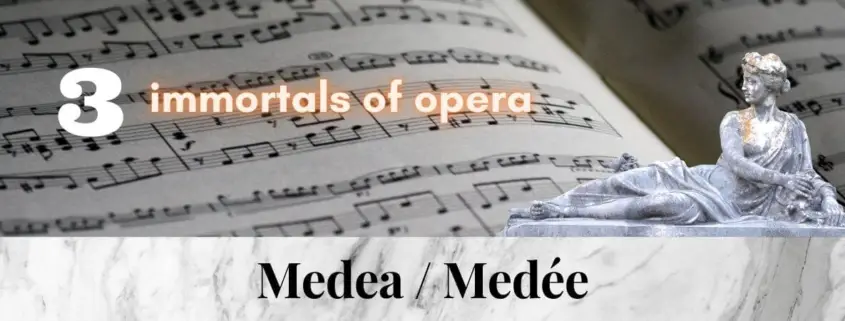3 immortal pieces from Cherubini’s Medea – the best interpretations in YouTube
No other opera is so associated with the name of a female artist as Cherubini’s Medea. Maria Callas’ embodiment of this ancient figure was an elemental event and led to a renaissance of this opera in the middle of the last century, the force of which still manages to captivate us today.
Glauces beautiful coloratura aria
With this aria Cherubini presents the gentle and vulnerable Glauce as the antithesis of Medea. In a wonderful dialogue with a solo flute, Glauce sings of her happiness with virtuoso coloratura.
The aria requires security in the heights and high coloratura artistry. We hear Lucia Popp, who makes the aria an experience with her golden voice.
O Amore, vieni a me! fa cessar questo duol / Hymen! Viens Dissiper Une Vaine Frayeur – Popp
The great supplication of Medea – dei tuoi figli la madre
Of this aria, Callas said it was a killer. It moves in the highest tessitura throughout and the singer has to manage the most difficult articulations in the extreme registers.
It is breathtaking to hear the pleading, contempt and sentimentality in Maria Callas’ voice. She reportedly received ten minutes of applause after the aria in this recording from La Scala, Milan.
Taci Giason … Dei tuoi figli la madre tu vedi / Vous Voyez De Vos Fils
Medea’s Plan
With the wedding party audible simultaneously inside the church, Cherubini created a tremendously dramatic theatrical effect. At the conclusion of this scene, Medea’s emotions overtake her and she cries out her feelings of revenge from her soul.
Ah! Triste canto! In suon festoso – Callas







Leave a Reply
Want to join the discussion?Feel free to contribute!